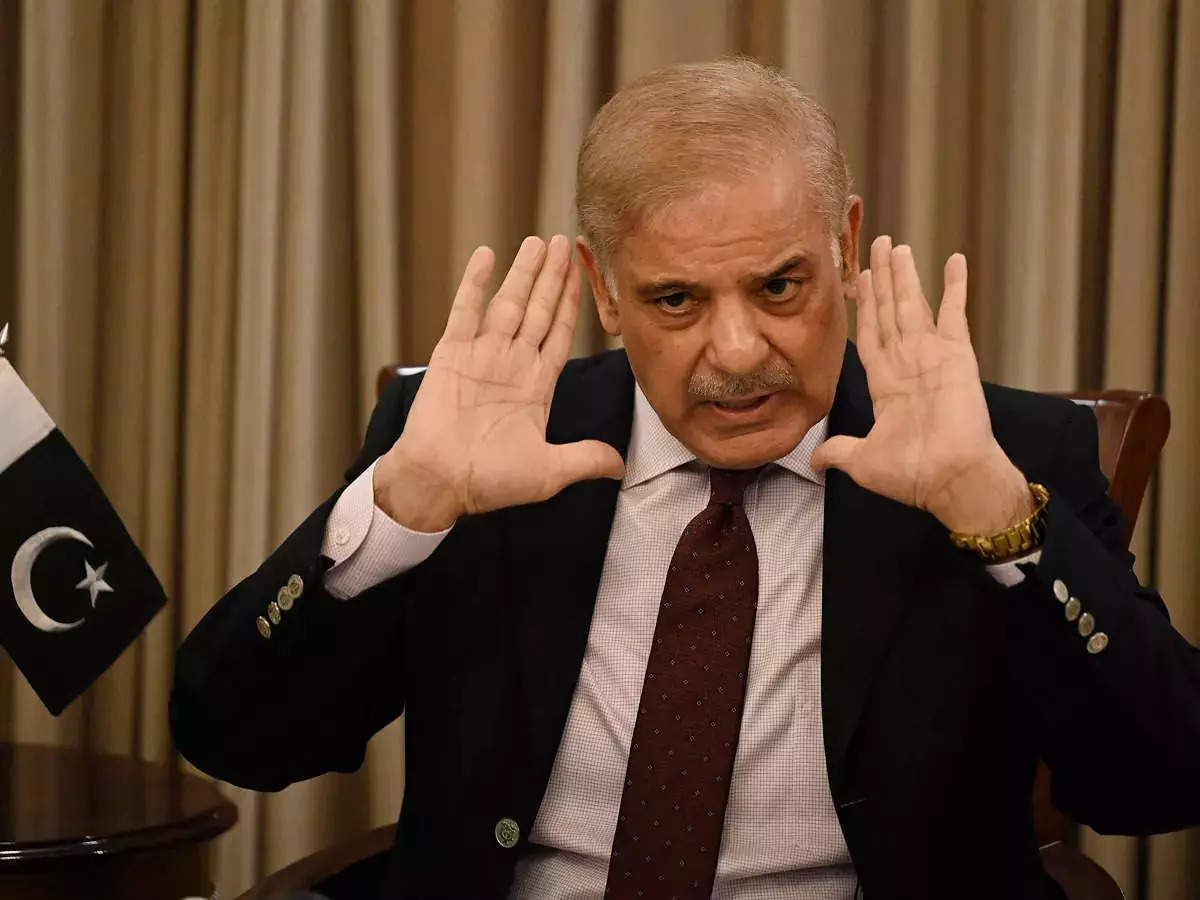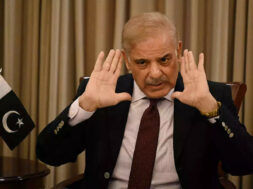
Sharif Offer for Talks with India: No Discernible Change in Pakistan Stand of “Kashmir First”
Manas Dasgupta
NEW DELHI, Jan 17: Pakistan may have “learnt its lesson” after three wars with India as admitted by the incumbent prime minister Shehbaz Sharif, but to believe that it has mellowed down and is really sincere to “live as friendly neighbours” will be misleading conclusion, Pakistan experts feel.
Sharif’s statement on India – Pakistan relations and his offer to the Indian leadership for “serious and sincere talks” in an interview with a Dubai-based Television channel apparently was an attempt to divert the attention of the Pakistani people airing public discontent due to flour crisis and fuel shortage among others with the country battling with serious economic crisis.
Read between the lines, there is no serious change in Pakistan’s stand for talks with India. It had always remained “Kashmir first” before it agreed to sit on the negotiation table, and Sharif in the interview has again underlined the same issue. “My message to the Indian leadership and Prime Minister Narendra Modi is that let’s sit down on the table and have serious and sincere talks to resolve our burning points like Kashmir,” he had said. And the Pakistani PMO promptly clarified that talks with India would be possible only after India revoked abrogation of article 370 in Jammu and Kashmir which annulled the hitherto state’s special status.
Its stand continue to remain in direct contrast with India’s which maintains that Jammu and Kashmir was an integral part of India and it could not be a subject of negotiations. India also insists that any talk with Pakistan was possible only after it stopped cross-border terrorism of which there was no mentioning in Sharif’s interview.
In the interview aired on Tuesday, Sharif called for “serious and sincere talks” with Prime Minister Narendra Modi on “burning points like Kashmir.” Sharif said Pakistan has learned its lesson after three wars with India and stressed that now it wants peace with its neighbour.
“My message to the Indian leadership and Prime Minister Modi is that let’s sit down on the table and have serious and sincere talks to resolve our burning points like Kashmir. It is up to us to live peacefully and make progress or quarrel with each other and waste time and resources,” Mr. Sharif said.
Sharif also said, “We have had three wars with India, and they have only brought more misery, poverty, and unemployment to the people. We have learnt our lesson, and we want to live in peace with India, provided we are able to resolve our genuine problems.”
Pakistan, which is battling a severe economic crisis, public discontent due to flour crisis and fuel shortage among others, is also faced with rising instances of terror attacks by the Tehreek-e-Taliban Pakistan (TTP), which had ended a ceasefire with the country’s security forces late last year.
“India is our neighbour country, we are neighbours. Let’s be very blunt, even if we are not neighbours by choice we are there forever and it is up to us for us to live peacefully and progress or quarrel with each other and waste time and resources. That is up to us,” Sharif said.
Mr. Sharif also brought up the subject of Kashmir, adding that Pakistan wants peace but insists that “what is happening in Kashmir should be stopped.” “[India] usurped whatever semblance of autonomy was given to Kashmiris in their Constitution — Article 370. They revoked that in August 2019, and minorities over there are pained, grossly mishandled. This must stop so that a message can go around the globe that India is ready to have talks, and we are more than ready,” said Mr. Sharif.
The Pakistan leader also said both the countries have engineers, doctors, and skilled labourers. “We want to utilise these assets for prosperity and to bring peace to the region so that both nations can grow.” “Pakistan does not want to waste resources on bombs and ammunition. We are nuclear powers, armed to the teeth, and if God forbids, a war breaks out, who will live to tell what happened?” he said.
The Pakistan PMO said Sharif had consistently maintained that Pakistan and India must resolve their bilateral issues through dialogue and peaceful means, but only after India revokes its decision on Kashmir. “In ref. to PM Shehbaz Sharif’s interview, the spokesman of the PM Office has said the PM has consistently maintained that Pakistan & India must resolve their bilateral issues, especially the core issue of Jammu & Kashmir, through dialogue and peaceful means,” the Pakistan PMO tweeted.
“However the Prime Minister has repeatedly stated on record that talks can only take place after India has reversed its illegal action (sic) of August 5, 2019. Without India’s revocation of this step, negotiations are not possible,” it said, adding “The settlement of the Kashmir dispute must be in accordance with the UN resolutions & aspirations of people of Jammu & Kashmir. The Spokesman said that the Prime Minister made this position very clear in his interview during his recent visit to the UAE.”
India in November last year had lashed out at Pakistan for raking up the issue of Kashmir during a United Nations debate, terming it as “desperate attempts to peddle falsehoods.” “As we meet today to discuss UNSC reforms, a representative of Pakistan has yet again made unwarranted references to Jammu and Kashmir. Jammu and Kashmir remains an integral and inalienable part of India irrespective of what Pakistan’s representative believes,” said Pratik Mathur, Permanent Mission of India to UN, in the right to reply during the United Nations General Assembly (UNGA) meet on UN Security Council.
“Pakistan’s desperate attempts to peddle falsehoods and a bad habit of abusing the sanctity of multilateral forums deserves collective contempt and perhaps sympathies as well,” he had added.
Pakistan Foreign Affairs Minister Bilawal Bhutto Zardari had spoken about alleged human rights violations in Jammu and Kashmir. India’s response to Pakistan’s claims came during a key UN General Assembly meeting on the United Nations Security Council.













